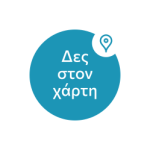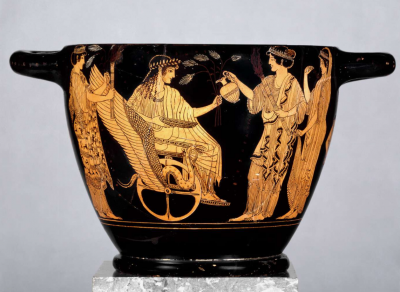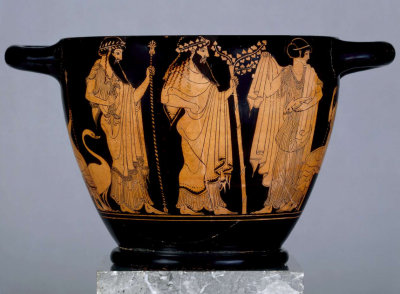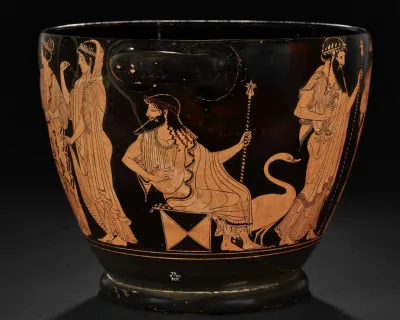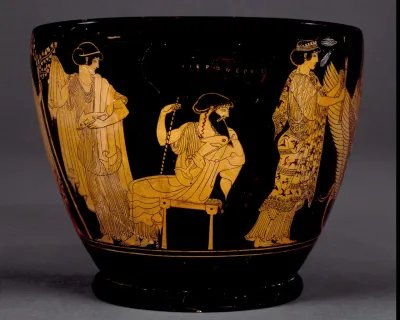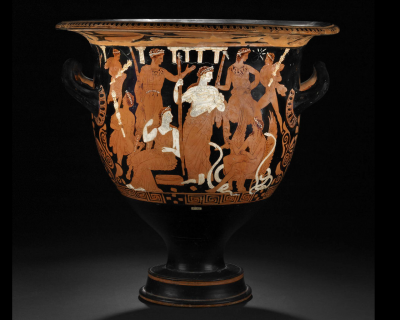
According to the most common tradition, Eumolpus was the son of Poseidon and Chione, daughter of Boreas and Oreithyia. Fearing her father’s wrath (for the child was the fruit of an unlawful union), Chione threw him into the sea, to Poseidon. To ensure his safety, Poseidon carried him to Ethiopia and entrusted him to Benthesicyme, his daughter by Amphitrite. She raised him, and in due course her husband arranged for him to marry one of their daughters. One day, however, he molested one of her sisters and was banished. He and his son Ismarus went to Thrace, where King Tegyrius gave Ismarus one of his daughters as a bride. Eumolpus was later exiled for plotting against Tegyrius; this time he went to Eleusis, where he had friends. When Ismarus died, Tegyrius called him back to Thrace; they were reconciled, and Eumolpus eventually inherited Tegyrius’ throne. When war broke out between Athens and Eleusis, he went to the aid of the Eleusinians with a strong body of troops, proclaiming that Attica was his father’s native land. He was killed in battle by Erechtheus, king of Athens, which so enraged Poseidon that he slew him with his trident; by another account, Poseidon asked his brother Zeus to avenge his son’s death, which he promptly did, with a thunderbolt. According to Pausanias, Erechtheus killed both Eumolpus and his son Immaradus (whom others take to be Ismarus). On the Acropolis in Athens there was a bronze sculpture with two facing figures, which Pausanias said represented Erechtheus and Immaradus but that others mistakenly identified the subject as Eumolpus in single combat with the Athenian king, when in fact it was his son. Various traditions credit Eumolpus, the Thracian, with the founding of the Eleusinian Mysteries. It was he, they say, who purified Heracles after the murder of the Centaurs, who initiated him into the sacred rites, and who taught him to play the lyre, an art in which he was highly skilled. After his death, his younger son, Ceryx, took over responsibility for the cult of Demeter, assuming a role in the orgiastic rites; some sources, however, say that Ceryx was the son of Agraulus and Hermes and therefore has no connection with Eumolpus. The legend of Erechtheus and Eumolpus has to do with the Athenian subjugation of the Eleusinians, but at the same time implies a Thracian origin for the Mysteries, which remained under absolute Eleusinian control. In general, however, the sources do not agree on the figure of Eumolpus, the founder of the Mysteries. Some, indeed, think him an entirely different person from the son of Chione, identifying him as the son of Deiope and grandson of Triptolemus.
